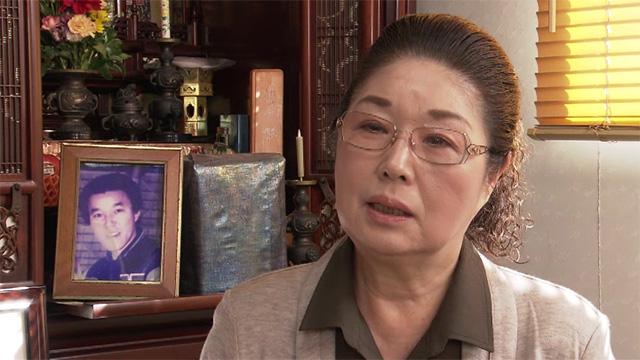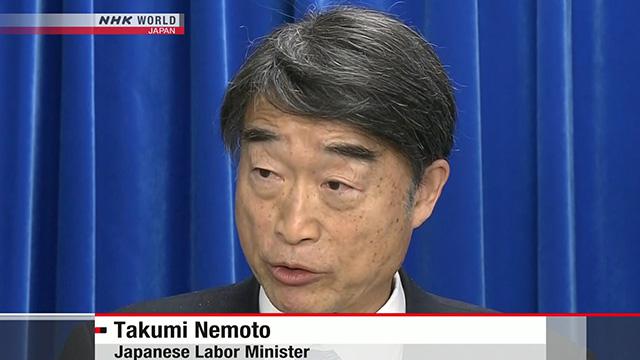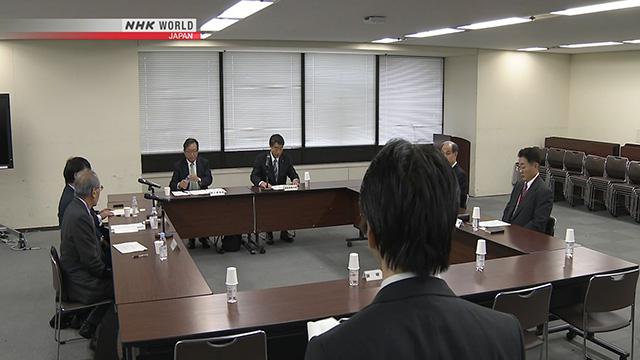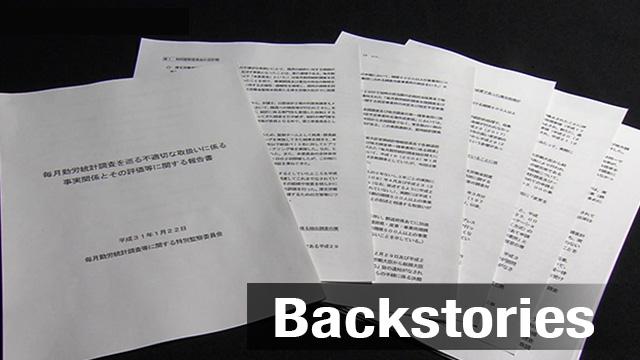Taking stock of business
The Labor Ministry makes monthly surveys of wages and working hours at businesses across Japan.
The resulting data are considered key statistics and provide the basis for calculating unemployment benefits and accident compensation under the national social security system.
The recent discovery sheds light on how the surveys were actually conducted.
The surveys are supposed to cover all establishments with 500 workers or more across Japan. However, it was found that only 500 businesses in Tokyo, or about one third of the correct figure, were surveyed.
The Ministry says the problem began in 2004. It's been found that many large organizations in Tokyo offering higher-than-average pay to their employees were excluded, and that the resulting "per capita wage" was lower than it should have been.
Effects of the faulty data
The faulty data has caused various problems. For example, some people received less unemployment benefit or worker's compensation than they should have, as their entitlements were calculated using incorrect numbers.
Officials at the Labor Ministry say they plan to pay a total of nearly 500 million dollars to about 20 million people as back payments to make up the shortfall.

Emiko Teranishi from Kyoto is one of the people affected by the problem. She is bringing up two children on her own after her husband took his own life. To pay the bills, she worked while receiving pension payouts designed for bereaved families. She is thought to have received less pension than she should have.
Teranishi said it took her many years to be awarded the pension payout. She said Ministry officials are betraying the public by looking down on people and deciding arbitrarily how much each person is worth. She said this should have never happened.

Labor Minister Takumi Nemoto told a news conference, "I offer my sincere apologies for causing people trouble."
He said he is determined to make the necessary back payments and take other concrete steps.
And the Cabinet has revised the country's budget bill for fiscal 2019. It now includes an additional 6 million dollars from the general account to go toward underpaid unemployment benefits and other work-related payouts. It's rare to revise a draft budget that's already been approved by the Cabinet.
Why did the problem persist?

A panel of lawyers and statistics experts investigated why the problem continued for so long. The panel submitted its report to the Labor Minister on Tuesday.
The focus of the investigation was on whether the failure to conduct accurate surveys was systematic and deliberately hidden.
A survey manual used since 2004 says accurate statistics can be obtained even without covering all the firms on the required list. This is being seen as an endorsement of the incorrect method.
However, that section was deleted in a new manual published in 2015. Some feel officials in charge removed the section to hide the fact that they knew it was inappropriate.
According to the report from the expert panel, the Ministry used incorrect methods because many of the major businesses raised complaints about being surveyed so often. The report says there was also a need to consider requests from the metropolitan and prefectural governments that conducted the surveys.
The governor of Tokyo turned down that request on Wednesday.
It quotes the officials in charge of the surveys as saying that the section removed from 2015 was cut in the belief that its deletion wouldn't make any difference to the survey procedure.
It also points out that officials were aware that the methods they used were inappropriate, yet they continued to stick with the practice. The report calls their actions "unbelievable" and "outrageous." The panel says, however, it was unable to confirm any intention to conduct a cover-up.
Labor Minister Takumi Nemoto says he will voluntarily return four months' worth of his salary and will do his best to prevent a recurrence. He also reprimanded the vice labor minister and punished 20 other officials with reduced salaries and other measures.
What's behind the botched data?

Akimichi Takemura is the director of Shiga University's Data Science Education and Research Center.
Takemura says: "Simple mistake was probably overlooked due to an inadequate checking system. Checking such calculations requires a certain level of expertise in statistics, such as assessing the margin of error."
The number of national employees working in the field of statistics has been dropping. In 2008, a total of 4,390 people were assigned to statistical duties at 11 ministries and agencies. The number had fallen to 1,940 by last April. The Internal Affairs Ministry says officials who have never previously been involved in the field are, in some cases, compiling statistics.
Takemura says the government should review its current position on the compilation of statistics:
"Some people say data in the 21st century is what petroleum was in the 20th century. The government faces the challenge of how to utilize big data in government statistics. More people with relevant knowledge will be needed, so developing such human resources is a major task for society."

